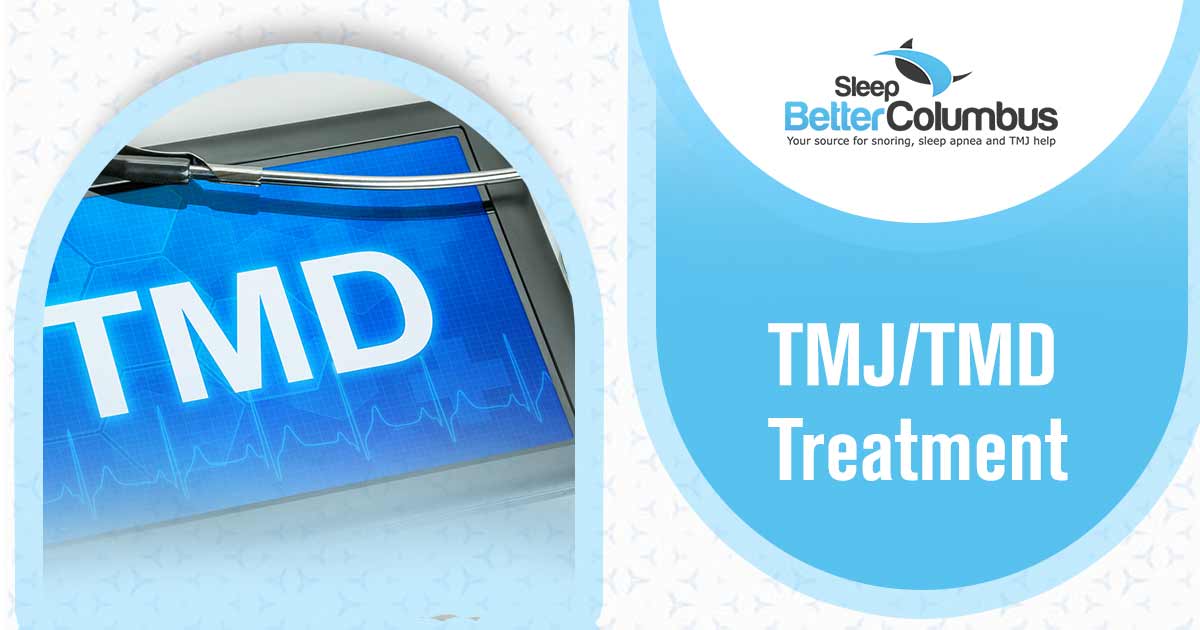What is TMJ?
Temporomandibular joint disorder (TMJ) is a disorder of the temporomandibular joints, jaw, muscles, ligaments, and nerves associated with chronic facial pain. It is also called temporomandibular dysfunctions or disorders (TMD). Many episodes of TMD are temporary and go away on their own with noninvasive treatments. However, TMD can significantly impact one’s life by affecting one’s ability to chew, yawn, or speak easily or properly.
This condition significantly affects a person’s quality of life. Untreated TMJ can cause debilitating or excruciating pain that reduces the ability to successfully eat, sleep, and even function well in everyday activities. Fortunately, many treatment options are available, especially with the assistance of a TMJ dentist.
What Are the Symptoms of TMJ?
TMJ disorder symptoms vary widely. People may experience jaw, facial, and shoulder or neck pain. The pain a person feels from TMD can range from mild to severe, with some people experiencing chronic pain.
Common symptoms of temporomandibular joint dysfunction include:
- Jaw joint pain in one or both temporomandibular joints
- Aches or pain in and around the ears
- Discomfort or pain while chewing or difficulty chewing
- Jaw stiffness or tenderness
- Toothaches
- Pain that spreads to the face and neck
- Facial swelling
- Shoulder or neck pain
- Headaches and migraines
- Tinnitus (ringing in the ears), hearing loss, or dizziness
- Limited movement or locking of the temporomandibular joint, making it difficult to open or close your mouth
- Painful clicking, grating, or popping in your jaw joint when you open or close your mouth
- Changes in how your upper and lower teeth align or fit together
- Blurred vision
Patients may experience all of these symptoms, or just a few. In addition, TMJ disorders can cause a clicking sound, a grating sensation, or popping in the jaw joint when opening and closing the mouth or chewing, which causes pain and limits jaw movement.
Sounds without pain in the temporomandibular joints are normal, happen often, and do not need treatment.
Treatment Options for Temporomandibular Joint Disorder
There are many effective TMJ treatment options available, and you don’t have to live with the pain and discomfort of this condition. Treatment methods range from conservative methods to surgery, if necessary.
TMJ Treatments at Home
TMJ can be effectively treated at home. Ice packs can reduce swelling and irritation of the impacted area, and heat packs can reduce inflammation. Ibuprofen or Aleve are excellent over-the-counter (OTC) pain medications that effectively treat TMJ. Your TMJ dentist may prescribe prescription pain relievers if OTC pain medications don’t manage your pain effectively.
They may also have you take anti-inflammatories or suggest sleep aids if your symptoms worsen at night. Some dentists offer muscle relaxers to help the TMJ relax, which may alleviate symptoms.
Medical Options for TMJ Treatment
When home remedies aren’t effectively treating your temporomandibular joint disorder, several medical options can help you find relief. Your TMJ dentist can prescribe an oral appliance like a bite guard that will be fitted to you and help prevent teeth grinding, which eases jaw tension.
Your TMJ dentist can inject medications, such as cortisone or steroids, into the joint to alleviate your pain. Your dentist may also use a needle to irrigate your jaw and remove any debris or other items, such as a bone spur or fragment, that might be causing your pain, which can offer almost immediate pain relief. In the past, Botox has also been used to relieve pain by helping to relax jaw muscles; however, Botox carries risks and isn’t an FDA-approved treatment option for TMJ.
In extreme cases when nothing else is bringing you relief, dental surgery or jaw surgery may be necessary. Surgical options for temporomandibular joint disorder are always a last resort, and your TMJ specialist will discuss all of your treatment options and which ones will be best for you.
Lifestyle Changes That Can Help Manage TMJ Symptoms
Lifestyle changes can relieve your TMJ pain and help you manage other temporomandibular joint disorder symptoms. Your TMJ specialist will complete a thorough evaluation and make recommendations based on your individual needs.
Some lifestyle changes your TMJ specialist might recommend include:
- Eating softer foods and watch out for sticky or chewy foods that require a lot of chewing or grinding your teeth.
- Massage techniques for the facial area can be done at home.
- See a therapist or counselor to learn stress management techniques and reduce or eliminate stress-related behaviors like teeth grinding or jaw clenching that worsen TMJ pain.
- Implementing mindfulness or relaxation techniques to reduce stress and relax neck and jaw muscles.
- Exercise and other physical
- Physical therapy helps stretch and strengthen jaw muscles and effectively manage TMJ symptoms.
When Should I Consult a TMJ Dentist?
Suppose you’re experiencing jaw pain or other common TMJ symptoms or have any other concerns you might have temporomandibular joint disorder. In that case, scheduling a consultation with a TMJ dentist or specialist is a good idea. With all the treatment options available today, there is no reason to live in pain and discomfort.
How Can I Find a TMJ Dentist?
Your dental provider or primary care physician can refer you to a TMJ dentist or specialist. You can also ask family and friends if they have any recommendations. The American Academy of Orofacial Pain, a professional organization of dentists and other healthcare professionals, can provide information on the best TMJ dentists and TMJ specialists near you.
What Should I Expect at My First Appointment with a TMJ Dentist?
Your first appointment with a TMJ dentist will begin with a review of your medical and dental history, followed by questions about your symptoms, their level of intensity, and their longevity. The TMJ dentist will perform a comprehensive evaluation and conduct several tests to confirm a diagnosis of temporomandibular joint disorder and evaluate your TMJ.
The TMJ dentist will conduct a range of motion test for your jaw and listen to and feel it as it opens and closes. They will also check all the head and neck muscles, ligaments, and tendons. The TMJ specialist may conduct further tests like an X-ray, MRI, or CT scan. Sometimes, a TMJ arthroscopy test may also be used. The TMJ dentist’s evaluation and any tests performed help determine the extent of the illness and how much damage the joint has suffered.
Do I Need to Do Anything Before My First Visit with a TMJ Dentist?
Since the TMJ dentist will ask you questions about your TMJ so they can determine the severity of your temporomandibular joint disorder, it can be helpful if you have answers ready ahead of time. Please write down the information or type it into a notes app on your cell phone. It would help if you listed the following:
- how long you’ve been experiencing symptoms
- the types of symptoms you experience, their intensity, and their frequency
- the activities that typically cause you the most pain
- any prescription and over-the-counter medications or herbal supplements you take regularly
- if you’ve been under any additional stress lately
Experienced, Caring TMJ Dentists at Sleep Better Marysville Can Help You with TMJ Pain
If you want to learn more about treating your jaw pain, have questions about your TMJ, or have a temporomandibular joint disorder, please call Mark Levy, DDS with Sleep Better Marysville, at (614) 777-7350 for a TMD consultation and complete evaluation. Our experienced staff can give you all the information you need to make the best decision for your treatment needs.

